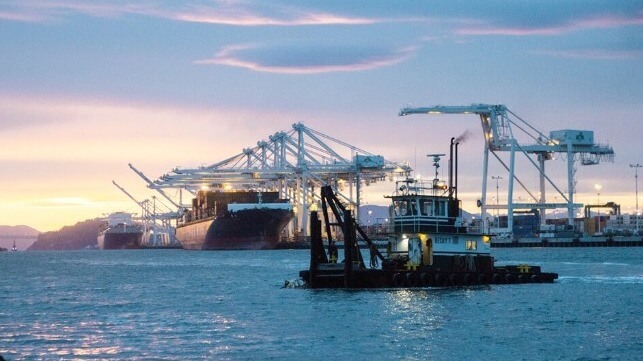Coast Guard Concerned About California's New Exhaust Rules for Tugs

California's stringent air quality rules have always been a source of controversy, and new guidelines for ship emissions are no exception.
The California Air Resources Board (CARB) has proposed a rule that would require commercial harbor vessels to install Tier 4 diesel engines and diesel particulate filters (DPFs) to control NOx and ultrafine particle emissions. Miniscule particles from diesel emissions are a known carcinogenic hazard, and CARB wants to cut them back. The first implementation deadline for existing California tugs to install a Tier 4 plus DPF combination is Dec. 31, 2024, so the timeline for compliance is moving fast.
However, the U.S. Coast Guard has safety concerns about DPF use in a maritime application. DPF systems have to operate at abnormally high temperature every so often in order to burn off accumulated soot. In the trade, this is called a regeneration cycle, and the required temperature is typically in excess of 1,000 degrees F.
This is well above the temperature found in a typical exhaust stack, and the Coast Guard is concerned about potential safety issues with "DPF operating temperatures and the fire load of the vessel." (Hot exhaust and exhaust surfaces are already a potential fire hazard, even at conventional temperatures.)
"Coast Guard regulations do not explicitly address DPF installations onboard commercial vessels," cautioned 11th District commander Rear Adm. A.M. Sugimoto in a recent letter to CARB. "Please note that DPFs verified by CARB may not necessarily be accepted by the Coast Guard."
By statute, each vessel will have to demonstrate federal regulatory compliance, and it is ultimately up to the engine manufacturer to make sure that the complete engine system is approved to EPA standards. The Coast Guard's inspectors will not perform emissions tests, he said - and therefore the Coast Guard will not enforce California's DPF regulations.

that matters most
Get the latest maritime news delivered to your inbox daily.
The American Waterways Operators (AWO) is concerned too, and it has asked California Gov. Gavin Newsom to delay the enforcement of the new CARB rules. AWO's CEO, Jennifer Carpenter, called the new rules a "regulatory trap and dangerous game of supply chain chicken" for tug and workboat operators in California.
"Time is of the essence. If you do not act swiftly, towing vessel operators will be faced with the unfair decision between risking noncompliance with the CHC rule or taking their vessels out of service in California," Carpenter said in a letter to Gov. Newsom.
